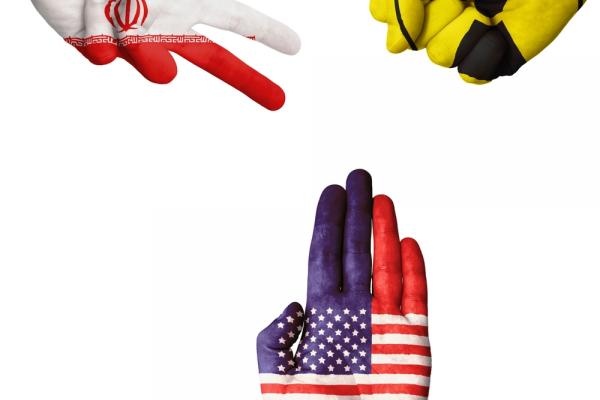The recent agreement with Iran relating to its nuclear program is totally in keeping with the requirement of Just War Doctrine that the military use of force be considered only as a court of last resort, i.e. after all realistic diplomatic options “have been shown to be impractical or ineffective.” Despite the fears of the naysayers, pressing ahead with nonviolent options as the Western powers are currently doing (with eyes open and verification every step of the way) is absolutely the right thing to do.
Twice in recent history, Iran has made diplomatic overtures to the United States to open discussion on all issues standing in the way of a cooperative relationship. On neither occasion did we respond, since it was regime change that we were after. Well, by not responding, we effectively achieved that goal by undermining the reformist regime of President Mohammad Khatami (which made the overtures), and paving the way for the hard-liners’ ascension to power under Mahmoud Ahmadinejad. It is axiomatic that unless one is willing to engage and make at least a cursory attempt to view the problem through the other’s cultural lens, the chances of reaching a mutually acceptable settlement short of war are meager at best.
In dealing with the highly charged topic of Iran’s pursuit of nuclear weapons, for example, it would be useful to contemplate more seriously the significance of the fatwas issued by both of Iran’s supreme leaders — Ayatollah Khamenei and, before him, Ayatollah Khomeini — against weapons of mass destruction (on the basis that such weapons are inherently un-Islamic because of their indiscriminate nature, i.e. they cannot be used without killing innocents). Buttressing this line of thinking is Iran’s claim that it consciously chose not to respond in kind when attacked with chemical weapons by Iraq during the first five years of the Iran-Iraq War. Also of note is a poll taken in 2008 of Iranian attitudes toward nuclear weapons, in which more than 70 percent of those polled expressed opposition to developing them, regardless of whether the respondents were conservatives, moderates, or reformists.
From a realpolitik standpoint, it is easy to see why Iran might want a nuclear weapons capability, if only to deter its neighbors that already have them (i.e. Israel, Pakistan, India, Russia, and China). In view of the fatwas, however, and that such edicts are taken seriously in a country where religion allegedly trumps all else (and constitutes the very glue that binds in a theocracy), it seems entirely plausible that Iran might want to be perceived as having the potential to develop nuclear weapons without actually developing them. One should also take Ahmadinejad’s earlier, seemingly suicidal pronouncements on the imminence of the “end times” with a grain of salt. Iran is a highly advanced culture with more philosophers per hectare than any other country on the planet. Such people do not value life lightly.
Yet another reality worth considering is that Iranians tend to trust religion far more than they do politics. Accordingly, it could be helpful to formulate a potentially helpful Track Two initiative around Iran’s openness to religion as a precursor to discussing important secular issues. One possibility that comes to mind, especially if the current negotiations lead to further openness, is what one might call a “peace game.” Since Iran has been the focus of any number of war games, this would represent a peacemaking counterpart. However, rather than a scenario-driven exercise as most war games tend to be, a peace game would be more akin to facilitated brainstorming.
The basic concept would call for bringing participants from Iran and the United States together for a week to discuss what the Iranians proposed earlier, i.e. how to overcome the obstacles that stand in the way of a cooperative relationship. Participants for the game would be chosen from the ranks of respected religious, political, academic, and professional figures who (1) are not in government, (2) are known to be spiritually minded, and (3) have views that would command serious consideration by their respective governments. A religious framework for the discussions would be established at the outset, a world-class expert on negotiations would facilitate the “game,” and the final recommendations would be presented to both governments for appropriate consideration.
In short, the opportunities for moving ahead are limited solely by our imagination and willingness to engage.
Dr. Douglas Johnston is president and founder of the International Center for Religion and Diplomacy. The above views are also presented in his latest book,Religion, Terror, and Error: U.S. Foreign Policy and the Challenge of Spiritual Engagement.
Photo: Solkanar/Shutterstock
Got something to say about what you're reading? We value your feedback!
